(Sagos, Japanese Holly Fern)
Category: Other gardens
Tokyo bonsai’d gardens
This first visit was in winter, our next will be in the summer and I’ll take more garden photos and visit lots of botanical gardens.
Every plant is bonsai’d in Tokyo, not just small potted plants, but 30′ trees and everything in between. No plant is safe.
Formal gardens in Tokyo
We made our first visit to Tokyo in the winter, our next visit will be in warmer weather and I’ll be visiting botanical gardens then. But for now here are a few photos from formal gardens about the city.
We were surprised to see so little bamboo. It is usually in patches about 20’x20′ and along the highway but rarely a part of the garden.
Every plant in the garden is bonsai’d. Here we tell people not to mushroom their shrubs or amputate their crapes, yet every plant in every Tokyo garden we saw was heavily pruned.
Along pathways tree branches are forced to grow across and down and supported with ropes and boards.
No plant is left untouched.
Tokyo pocket gardens
It was winter on our first visit to Tokyo, so we’re saving the botanical garden visits until our summer visit.
In the older residential areas of Tokyo the homes are 1-3 stories tall and the sidewalks in front of the homes have pocket gardens in front of the homes, often less than a foot deep. Clusters of potted plants are common as are tiny vegetable plots.
Mercer Botanical Gardens
Mercer is a place I often go visit, sometimes for classes, sometimes for plant sales, and sometimes just to wander about and take photos.
In the late 1940s, Thelma and Charles Mercer purchased a beautiful 14.5 acre tract of natural land along Cypress Creek. Thelma was an avid horticulturist, and she and Charles did much of the initial selective clearing to make space for some of her favorite native trees that included dogwoods, rusty black-haw viburnum, several species of hawthorns, plus many others. Thelma also planted large camellias that are still seen throughout the central gardens. She also introduced many other plant species, such as camphor, Ginkgo, Bauhinia, Philadelphus and tung oil that naturalized and are still growing beautifully.
When it came time for the Mercers to retire, they could not bear the thought of a developer bulldozing their paradise. So, in 1974, they convinced Harris County to purchase their original 14.5 acre tract with the stipulation that it would grow and be maintained as an educational and horticultural facility for the public.s enjoyment.







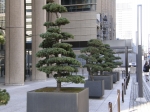









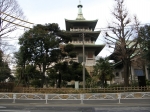





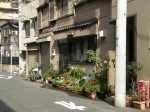
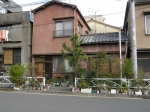





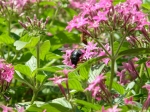

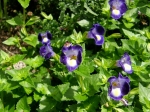

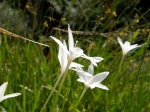










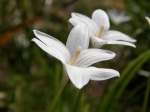


You must be logged in to post a comment.